Meet Rabbi Megan

How Congregants Give Back Finding Long-Lost Relatives
Plus: Holiday Dishes That Make Any Meal Special


Meet Rabbi Megan

How Congregants Give Back Finding Long-Lost Relatives
Plus: Holiday Dishes That Make Any Meal Special

When speaking with a newer temple member recently, the word “commitment” was raised. We weren’t talking about the financial support necessary to operate a temple. We discussed the commitment of individual members to build and sustain our Temple Beth-El community.
Are you interested in seeing more community events offered? How about more high-level educational programs? Would you like your children to be involved? Do you want your parents to be connected? Would you like to ensure a solid liberal Jewish presence in our community as the demographics change?
Our temple leadership is not paid to help guide the temple. Why do we invest so much time and energy into our beloved synagogue? Like your friends and neighbors who serve on the board
of trustees and temple committees, we are involved because we genuinely believe that we are impacting people’s lives through our commitment to our Jewish community.
Do you want to get more out of your temple membership? Would you like your synagogue to have more meaning in your life? Please get involved and help make it happen. When temple membership is viewed like a gym membership, we must pause, reflect and act. Our Jewish community is much more than “what have you done for me lately!”
When members get involved, they benefit. Ask those who volunteer to help plan a concert, reach out to homebound seniors and the bereaved, or our dedicated bakers who make treats for our Oneg Shabbat receptions. To paraphrase John F. Kennedy, today
we must “ask not what your Jewish community can do for you—ask what you can do for your Jewish community.” I assure you, the benefits of giving can be great, and it is never too late to begin. It’s good for our community, and it’s even better for your soul.
In the coming weeks and months, say “yes” to getting more involved. It can be as simple as bringing a friend to an event. Have bigger ideas? Reach out to a board member, our clergy or our staff—and let’s make things happen at TBE.
As I begin my fourth and final year as your president, I have started to reflect on how this great honor and opportunity has profoundly affected me. I am a better person because of this experience, and I hope our Jewish community is better as well. I wish you a great start to the New Year. L’Shana Tova!
RABBI
A. Brian Stoller
ASSISTANT RABBI
Megan Brumer
CANTOR
Adam Davis
RABBI EMERITUS
Jerome K. Davidson, DD
RABBIS EMERITI
Meir and Tara Feldman
CANTOR EMERITA
Lisa R. Hest
EXECUTIVE DIRECTOR
Stuart Botwinick
INTERIM DIRECTOR OF EARLY CHILDHOOD EDUCATION
Karen Wasserman
DIRECTOR OF ENGAGEMENT AND PROGRAMMING
Joy Allen
OFFICERS 2023–24
PRESIDENT Gary Slobin
EXECUTIVE VICE PRESIDENT
Jordana Levine
VICE PRESIDENT
Sheila Aronson
VICE PRESIDENT
Doug Bernstein
VICE PRESIDENT
Joanne Davis
VICE PRESIDENT
Barbara Podwall
FINANCIAL SECRETARY
Julius Myer
SECRETARY
Randi Weiler
TREASURER
Matthew Moshen
EXECUTIVE COMMITTEE
MEMBERS-AT-LARGE
Ronald M. Epstein
Leslie Abrams
Franklin S. Abrams
BOARD OF TRUSTEES
2023–24
Andrew Aaron
Sheila Aronson
Doug Bernstein
Joanne Davis
Larry Khazzam
Stuart Lempert
Jordana Levine
Matthew Moshen
Julius Myer
Barbara Podwall
Philip Ross
Michael Sanders
David Schwartz
Gary Slobin
Danna Sobiecki
Jennifer Still-Schiff
Grant Toch
Randi Weiler
TRUSTEES EX-OFFICIO
BROTHERHOOD
PRESIDENT
Sandy Caplan
SISTERHOOD CHAIRS
Sandy Lubert
Rochelle Rosenbloom
Jennifer Still-Schiff
PAST PRESIDENTS
Marjorie B. Kurcias
Stephen G. Limmer
Roger Tilles
Shelley M. Limmer
Franklin S. Abrams
Nina Koppelman
Leslie Abrams
Ronald M. Epstein
HONORARY VICE PRESIDENTS
Howard J. Herman
William K. Peirez
HONORARY TRUSTEES
Jacalyn F. Aaron
David A. Cantor
Ann Finkelstein
Alan Greene
John Hirsch-Leiman
Shari Isacowitz
Gloria Landsberg
Jerry Landsberg
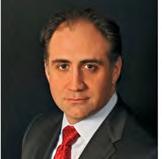
Stuart Lubert
Gayle Monaster
Linda Rice
Amy Spielman
SHEMA
Sheri ArbitalJacoby, Managing Editor
Leslie Abrams and
Howard J. Herman, Proofreaders
Hallie ArbitalJacoby, Designer
Puzzle: Fall Into the New Year! By Len Schiff 30











Our Award-Winning Magazine 30

Preplanning at Beth Moses Cemetery 36



Hopes for the New Year

As I begin my second year as senior rabbi of Temple Beth-El, I am excited to tell you about what we will be working on during 5784. Our focus will be in three areas in particular.
Not unlike many synagogues, our youth and young-family engagement were hit hard by the Covid shutdowns.
Thanks to the leadership of our former Early Childhood Education Center (ECEC) director, Vicki Perler, we were able to keep our preschool operating throughout the pandemic; however, our ECEC enrollment has not yet returned to prepandemic levels.
Similarly, our teen community has been beset by the significant challenges of navigating middle school and high school during these unprecedented times. Now that we are on the other side of the crisis, the time is right to rebuild and reenergize our young communities.
Passionate about kids, youth education and Jewish summer camp, our fantastic new Rabbi Megan is exactly the right person to lead this critical work. She is already partnering with our teens to plan fun, Jewishly inspired social action projects and other programs, and making meaningful connections with our ECEC and religious school families.
In addition, the search for our next ECEC director is underway, and we are excited to find the right person to lead our fantastic preschool into the future. We are grateful to our wonderful Interim ECEC Director Karen Wasserman, who just ran another fun and enriching summer program and is overseeing a successful start to our school year.
Prayer and Torah are the lifeblood of a Jewish spiritual community.
Last spring, we experimented with a variety of different worship settings, featuring different musical styles, spatial configurations and rituals, both traditional and modern, and
debriefed them together in four Congregational Conversations on Prayer. The feedback you provided during these conversations was tremendously helpful and insightful.
Now that our full clergy team is in place, we will be working on designing a rotation of prayer experiences that, we hope, will serve the wide range of spiritual preferences and needs of our diverse community.
On the Torah front, I am excited to be working with some of our congregants to enhance our adult learning program by offering more opportunities for high-level Jewish study, both with our clergy and with outside scholars.
Our congregation’s love for learning is especially inspiring to me, as sophisticated Jewish study was my portal into Jewish life as an adult and remains my passion. I am eager to continue on this journey of learning with you.

As members of this historic congregation, we have both the responsibility to carry TBE’s beautiful legacy into the future and the opportunity to envision and create the next chapter of our congregational story.
As the religious landscapes of Great Neck and America writ large continue to change at a rapid pace, now is the time for us to dream and begin to plan for what TBE wants to contribute to the world in the years to come.
Thanks to the foresight and leadership of our president, Gary Slobin, and our board of trustees, we will be launching a strategic-planning process in October to articulate our vision for the future and map out the path to realizing that vision.
This will be an intricate process that will require a significant investment of time and energy by our strategic-planning team, and I am grateful to the dedicated congregants who have committed to leading it. We are excited to get started and to keep you posted on our progress throughout the year.
I feel deeply honored and blessed to be a part of this warm, caring, thoughtful, curious and committed community! I am wishing you all a healthy and joyful New Year!
I feel deeply honored and blessed to be a part of this warm, caring, thoughtful, curious and committed community!
Rosh Hashanah and the High Holidays are the beginning of the new Jewish year—and the beginning of a new year for me. I am so excited to start this first chapter of my rabbinate here at Temple Beth-El as your assistant rabbi.
I started my path to the rabbinate in college while studying abroad in Israel during my junior year. Some may say that I actually started as a child, singing along during services, or song leading in high school and at Jewish summer camp, but my year in Israel opened my mind to the potential of becoming a rabbi and Jewish educator.
My Jewish journey, however, started as soon as I was born. The first music I ever remember listening to was Debbie Friedman and other Jewish musicians while riding in the car. Some of my earliest memories include sitting on the floor in front of the bimah for Family Shabbat on Friday nights.

For me, my lived experience is embedded in living Judaism; Judaism is interconnected in everything I do. As a result of my family upbringing, my experience at synagogue and my experience at Jewish summer camp, my connection and love for Judaism became deeper and deeper as I got older.
Once I made the decision to apply to school for rabbinic education, my life was set on a completely different path than I expected—but one that led me here to Great Neck.

I applied and was accepted to rabbinical school, graduated from college and deferred to take a gap year studying at Pardes Institute of Jewish Studies, a co-ed yeshiva in Jerusalem.
My year at Pardes reminded me why I chose the rabbinate and reignited my love and passion for Judaism and Jewish education that I had experienced throughout my life. I loved going to Talmud class, dissecting a passage and discussing with my classmates how it relates to our current lives. I knew I wanted to help make Jewish texts accessible and relatable in my future rabbinate.
I spent my first year of Hebrew Union College (HUC) in Jerusalem and then returned to the U.S. to continue my education in Los Angeles.
While at HUC LA, I had internships and opportunities for many different potential paths of the rabbinate, including in a synagogue, Hillel and summer camp setting. Each one showed me a rabbinic-education route where I could see myself working in the future.
Ultimately, at the end of my studies, my path led me here to Temple Beth-El. I am so excited to bring what I have learned from my studies, my internships and my own Jewish journey to help strengthen TBE’s youth programming, educational curriculum and more.
My goals for this year are to meet and get to know you and your family, to create monthly programs for teens and to work to strengthen our youth and family programming at TBE. I want to work with you to ensure that the education programs at TBE are the best that they can be and that they work for us as a community. I hope this is just the start of an amazing new chapter both for me—and for TBE.
To learn more about Rabbi Megan, read the interview on page 9.My goals for this year are to meet and get to know you and your family, to create monthly programs for teens and to work to strengthen our youth and family programming at TBE.
Every Rosh Hashanah, we read the Akedah, or Binding of Isaac. It’s one of the most dramatic, moving and even troubling passages in the Torah.
Abraham’s willingness to sacrifice his long-prayed-for beloved son raises many questions. While the blade never touches Abraham’s offspring, he is prepared to give up the most precious thing in his life.
We can never imagine ourselves even considering such an act. Our sages teach that this is, indeed, one of this text’s lessons—that human sacrifice is not acceptable.
The Torah does, however, outline dozens of different prescribed sacrifices for myriad purposes. Without a central temple in Jerusalem for them, they’ve been transformed and our worship has become internalized.
We, nevertheless, need to ask ourselves, what are we willing to sacrifice? What is so sacred to us that, like Abraham, we are willing to put it on the line?
The Hebrew word for sacred or holy, kadosh, also conveys something set apart. For our ancestors, that was made manifest through physical offerings, called korbonot. These offerings were elevated as they were burnt and rose into smoke, bringing the giver closer to the Eternal.
We effect this tikkun (repair) by tending more carefully to the people and ideas most sacred to us. At this time of year, when we make tshuva (repentance), it’s done first by mending our relationships—only then can we mend ourselves.
Holding something too holy, though, carries a danger. We can set something
so apart that it lives more in our minds rather than before us. We can make something so precious that it consumes us. Thus, we potentially destroy the thing we love and deem sacred.
Abraham’s near pedicide is no different. Following his binding, Isaac is obviously traumatized. While Abraham’s blade never touches his beloved son Isaac, his commitment to give up the most precious thing in his life is remarkable.
We cannot imagine contemplating something like this, and our sages have taught us that human sacrifice is not accepted in Judaism.
The Torah outlines dozens of other sacrifices for countless purposes. Though, without a central temple, rabbinic Judaism has transformed them into avodah sh’balev, worship of the heart.

Today, and especially at this time of year, our sacrifices are likewise no longer physical nor given on altars but are an offering of our soul, or korban nefesh.
This sort of offering is one of repentance, reflection and redirection through prayer and action. It is an opportunity to come closer to the Eternal through repair of our inner world as well as the one around us. We effect that tikkun (repair) by tending to the relationships and ideas most sacred to us.
Each of us owes ourself and the Eternal such a personal accounting. What is so holy to us that we have no choice but to offer it up to the universe and share it—even at the price of our keeping it ourselves?
This year, may we all find sanctity and share with one another that which is most sacred to each of us.
We need to ask ourselves, what are we willing to sacrifice? What is so sacred to us that we are willing to put it on the line?
When thinking of a word to describe Temple Beth-El, “home” resonates with many of our members. The synagogue always strives to meet our congregants’ needs; and many feel honored when they are able to give back. Some congregants show their love of our temple home by contributing financially, while others share their love by donating their time—and many do both. Without these contributions, our synagogue could not be such an outstanding, loving environment that welcomes everyone. Are you interested in doing more at Temple Beth-El?
Here are four ways to get involved.
1. Become an oneg baker. We are incredibly grateful to our oneg bakers who prepare delicious desserts for our superb erev Shabbat onegs and special programs—and we always welcome new participation, creativity and cherished recipes by our congregants. Each Friday night, Joy Palevsky, our director of operations and member liaison, makes sure the sweetest treats are served. If you would like to enhance the selection by contributing your favorites, please email jpalevsky@ tbegreatneck.org or call the main office at 516-487-0900.
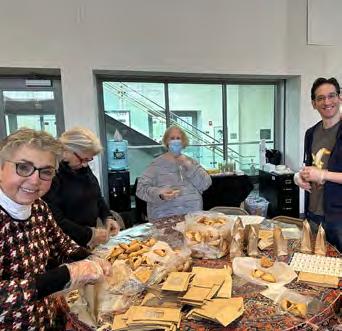
2. Welcome new members. To help our latest members feel comfortable in our growing community, our chaver (buddy) system pairs newer congregants with more established members during Friday night and Saturday morning services. Arlene Nevens spearheads Friday night arrangements, and Martha Hirsch oversees Saturday mornings. If you would like to assist us in integrating new and prospective members, consider volunteering to be a chaver for Temple Beth-El programs and other initiatives.
3. Package presents for the community. Our welcoming and inclusion efforts constantly show members that we’re thinking of them, as our volunteers distribute treats to certain temple groups throughout the year. For Purim, we presented Mishloach Manot packages to our congregants who are 75 years old or older. Our team of volunteers accomplished this mitzvah by packing and delivering goodies. If you’re interested in participating, we are continually looking for assistance with such initiatives.


4. Lend a compassionate ear. We always want to be supportive of fellow congregants during life’s ups and downs— and it’s extremely comforting to be on the receiving end of a phone call acknowledging a joyous occasion, offering healing thoughts to those who aren’t feeling well or suffered a loss, or showing empathy to someone who just wants to chat. Our chesed Caring Committee, chaired by Terri Levin and Debbie Bernstein, supports such outreach. We regularly seek new volunteers to fulfill this special mitzvah of caring for our temple family.
So many other volunteer opportunities further Temple Beth-El’s core mission to Inspire Through Purpose, Be Known by Love.
Immersing yourself in acts of kindness can help you realize your purpose and, ultimately, feel fulfilled. We are thankful for all our volunteers who do so much for the temple and enable us to remain a supportive home to so many. We can’t do it without you!
If you are looking to get involved, I would love to hear from you. Please contact me at jallen@tbegreatneck.org.
Shana Tova!
Graduates of the Temple Beth-El Pre-K Class of 2023 share some of the special experiences from their time in our Early Childhood Education Center.

“My favorite part of pre-K is playing on the playground.”
“I love coloring and writing.”

“Spending time with the rabbi is fun.”
“I like everything about pre-K.”
“I like making slime and playdough.”
“I love celebrating Jewish holidays.”
“Cantor Adam sings silly songs with us.”
“Celebrating Shabbat is so much fun.”
Rabbi Megan Brumer moved across the country to become Temple Beth-El’s new assistant rabbi on July 1. She shares how her background sparked her desire to become a rabbi, why she is passionate about inspiring children and teens to love Judaism, and how she hopes to enrich our temple family. ▶
I am excited to share my love and passion for Judaism, Jewish music and Jewish education.

 Rabbi Megan celebrates Shabbat on the playground with little ones from ECEC.
Rabbi Megan celebrates Shabbat on the playground with little ones from ECEC.
Welcome to Temple Beth-El, rabbi. Please tell us what the Jewish environment was like when you were raised in Bellevue, Washington. Thank you! I am excited to be here. The greater Seattle area has a fairly large Jewish community, including synagogues and organizations from all denominations. This allowed me to have a strong Jewish upbringing.
What was your Jewish affiliation and involvement growing up?
I grew up in a very passionate Reform Jewish family. My family joined Temple B’nai Torah in Bellevue, Washington, when I was an infant, and I remember going to Friday night family services as a kid and loving the music and prayers. I also attended a community Jewish day school, which introduced me to a larger spectrum of what it means to be Jewish.
What led you to become active in Jewish summer camp and your synagogue’s youth group?
My parents sent me to our synagogue’s Jewish overnight camp starting in third grade. We didn’t have a Union for Reform Judaism (URJ) camp in Washington at that time, so I went to Temple B’nai Torah camp for those first summers. During that time, my family was also involved in the early stages of the development of URJ Camp Kalsman, as my mom was the first chair of the Kalsman board of directors.
Through this, we volunteered our time and energy to help build projects at camp, further strengthening my connection with Jewish summer camp. URJ Camp Kalsman opened in 2007, and I continued attending every summer—starting as a camper, then counselor in training and eventually staff, including music specialist, unit head and director of Jewish education. I also attended URJ Kutz Camp, a high school leadership camp, as a participant in the song-leading track which enhanced my skills and love of song leading.
I always knew that I wanted to be a part of my temple’s youth group. Starting freshman year of high school, I ran for freshman rep and was on the B’nai Torah Youth board every year, including a year as religious and cultural vice president and another as president.
In high school, I spent many days a week at Temple B’nai Torah, teaching religious school, b’nai mitzvah tutoring and going to the high school program. My best friends were at Temple B’nai Torah, and I loved spending time with everyone there. Involvement in B’nai Torah Youth also included involvement with the Reform movement’s North American youth group NFTY and its regional group NFTY-NW, which allowed me to see my camp friends throughout the year at events.
At that point in my life, being a Jewish professional was not on my radar, so I laughed it off and continued on my science and technology path thinking I would be a future lay leader in my community.
During my junior year in college, I studied abroad in Israel through The Nachshon Project with 20 other students who cared about Judaism the way that I did, wanting to give back to the community in which they were brought up.
This experience allowed me to reflect and think seriously about what my future would look like. That semester is when I decided that I wanted to become a rabbi as well as a Jewish educator and started my path toward rabbinic education.
What sparked your passion for Jewish music and your love for leading communities in music and prayer?
Growing up, instead of listening to the radio in the car, we listened to Jewish music. From a young age, I knew more Jewish than secular music. I also loved going to Friday night services at Temple B’nai Torah and watching our song leader, Chava Mirel, play guitar and lead us in prayer. She was a huge role model for me, and I wanted to be just like her.
When did you first discover your interest in becoming a Jewish educator and a rabbi?
I have always had a love for Jewish education, which comes from my years at Jewish day school, Temple B’nai Torah and URJ Camp Kalsman. I loved being on staff at camp and creating programming for my campers that taught Judaism in a different way. I also loved song leading and leading services; and because of this, many people told me I would make a great rabbi.
Fast forward many years and I started to learn how to play guitar and started song leading in high school at camp, B’nai Torah Youth and NFTY. I continued to strengthen my skills through practice and experience, and it is something that is still one of my favorite things to do today.

Congratulations on your recent ordination. Please tell us where you attended rabbinical school, grad school and college.
Thank you. I attended Hebrew Union College–Jewish Institute of Religion in Los Angeles, where I was ordained as a rabbi in May 2023 and received my master’s in Jewish Education in May 2021. For undergrad, I attended
University of Washington in Seattle, majoring in International Studies: Jewish Studies.
Have you had any interesting experiences working at a temple or with the community in conjunction with your education?
My favorite experiences working in the field are the days when my students have “a light-bulb moment.”
For example, I was teaching kindergarten on Zoom during the pandemic, and we learned about the ner tamid, the eternal flame, which is in front of every ark on the bimah. Months later, we were going through a slide show of pictures and one of my students exclaimed, “That’s a ner tamid!” It was a picture of a sanctuary, and he noticed the ner tamid in the back on the bimah.
These moments are when I remember how important education is and that our students really do take in and synthesize all we are teaching, whether they are in kindergarten or they are adults.
As a Reform Jew who is passionate about Jewish experiential education, Jewish identity and Jewish community, how do you hope to help people discover or rediscover their connection to Judaism and guide them along their Jewish journey? Involvement in Jewish summer camp and my synagogue were such transformative experiences in my life; and I want to ensure that every person has their own similar opportunity, whether at camp, synagogue or a different educational setting.
I believe such informal encounters ensure that Jews both young and old can build a strong Jewish identity and create connections that will continue throughout their adulthood.

One way I hope to do this is through education. In helping people understand how Judaism impacts their everyday decisions, I know that I can help guide them along their Jewish journey.
As a lifelong Reform Jew, I believe in
the implementation of choice through knowledge and think we need to ensure that students of all ages are knowledgeable, so they can make the choice that best suits them. There is no one way to be Jewish, and everyone should have the opportunity to find how they personally connect best to Judaism.
Are there any unique programs you hope to share with the community?
I hope to bring family services as well as new teen programming to TBE.
Is there anything, in particular, you’re hoping to accomplish here?
As this is my first job out of rabbinical school, I hope to learn and continue to shape my rabbinate. I also hope to help strengthen youth and teen education at TBE, bringing in new programming and continuing what has already been successful.
Moving across the country from the West Coast, did anything in particular draw you to Temple Beth-El or Great Neck?
During my search process, I was very open regarding location, so I looked all over the country. What drew me here was the focus on education, as well as the chance to learn from and be mentored by Rabbi A. Brian Stoller. When I visited Great Neck, it felt similar to the area I grew up in, the suburbs of Seattle.
What do you anticipate your biggest adjustment will be as you relocate to Great Neck? Have you had any pleasant surprises?
I think the largest adjustment will be moving from one coast to the other and getting to know my new community. A pleasant surprise was finding how suburban Great Neck feels while being so close to the city.
Outside of work, what are some of the things that keep you busy?
I enjoy playing guitar, cross-stitching, reading a good book or watching an interesting TV show. I love nature and the ocean and spending time outside. I also love playing mah-jongg and am excited to play with my TBE community.
Please share something few people know about you.
I love woodworking and building projects. I grew up working in my father’s workshop; and in high school shop class, I built an armoire for my little sister’s American Girl Doll. Fun fact: My family and I built almost every bunk bed on the URJ Camp Kalsman property as well as a few gazebos and many benches.
What are you excited to share with the temple community?
I am excited to share my love and passion for Judaism, Jewish music and Jewish education.

Iam not sure whether I’m typical of American Jews whose family members have been in this country for more than a century, but I never thought the Holocaust—or Shoah, as I prefer to refer to it—had affected my family until my interest in genealogy taught me otherwise.
After taking an AncestryDNA test out of curiosity in 2018, I became intrigued by genealogy. That led to some surprising discoveries, some of which I described in “Love Thy Cousin,” an article that appeared in the spring 2019 issue of Shema magazine.
However, nothing prepared me for learning about Ruth Krell Steinfeld, a 90-year-old cousin of my wife, Barbara, who lives in Houston near her large family, and Paul Kaye, of blessed memory, the husband of my cousin Susan.
I’ve spoken with Ruth a few times by phone, and we’ve held a family Zoom meeting with her. Paul lived from 1927 to 2021, and I was fortunate to meet him and hear his story in 2018.
One morning this past June, I recalled that my mother-in-law, of blessed memory, had mentioned on a couple of occasions that she was related to a Rabbi Max Kapustin, z”l.
As I searched his name on Ancestry.com, I found him on a family tree maintained by a fellow amateur genealogist who, I was to learn, is the son-in-law of Ruth Krell Steinfeld.
I wrote to him via Ancestry, but I was not particularly hopeful of receiving a response. To my surprise, by 5 p.m. that day I was on the phone with Ruth, who turned out to be Rabbi Max’s niece.
Three days later, after finding both a photo of a gravestone on FindAGrave.com and a copy of a German death certificate on Ancestry, I was pretty well satisfied that I had solved the puzzle.
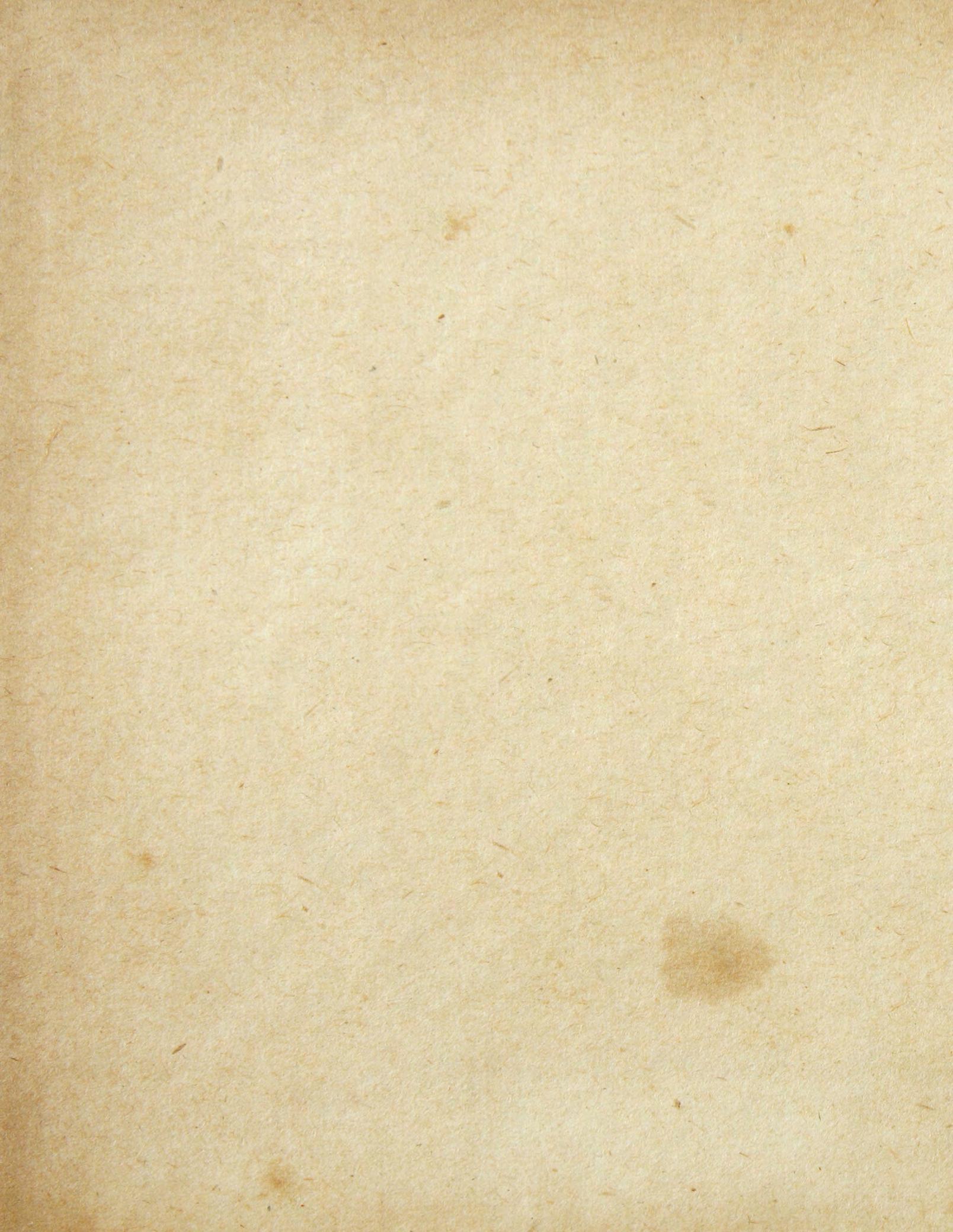
Ruth is likely Barbara’s second cousin: Ruth’s grandmother Berta was probably
the sister of Barbara’s grandfather Samuel. And I learned of a Great Neck connection to Ruth’s story, but I’m getting ahead of myself.
Ruth was born in Germany in 1933. Her story, and the parallel story of her sister, Lea, z”l, who was a year older, has been documented in Ruth’s book, Forgive but Never Forget; in Undeniable, a CBS News special in 2022 (which can be viewed at CBSNews.com); in Holocaust Museum Houston video interviews with Lea and her (which are also available online); and in numerous newspaper and magazine articles.
In 1940, Ruth, Lea and their parents were deported to a French internment camp. Men and women were immediately separated from one another, and that was the last time the girls saw their father.
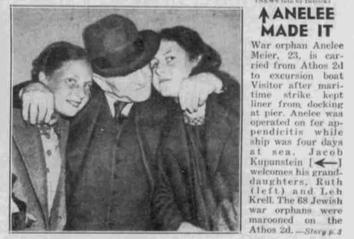
After five months there, Ruth’s mother, Anna Kapustin Krell, who was Barbara’s first cousin once removed, made a decision that saved the girls’ lives: She entrusted them to a French Jewish philanthropic organization, Oeuvre de Secours aux Enfants, that was able to take the girls out of the camp.
The association had the girls pose as Catholic, and they lived in group homes and with a French family as hidden children.
Ruth and Lea would come to learn that their parents were executed at Auschwitz.
In the meantime, their grandfather Jacob Kapustin was somehow able to flee Germany in 1940. Although he had been arrested by the German government, he had been released. Ruth believes that his release may have come about as a result of his friendship with the family of Karl Benz.
Here’s the Great Neck connection: Grandfather Jacob needed a place to live in the United States to qualify to come here; and according to Barbara’s sister who saw
an old correspondence, he was offered a home with Barbara’s grandmother’s family in Great Neck, where he lived until his death in 1947.
His residence in that home is confirmed in both the 1940 census and the ship manifest on which Ruth and her sister arrived. It turns out that Barbara’s grandmother was the sister-in-law of Jacob’s wife, Berta, who died of natural causes in Germany in 1938. Jacob lived in the home in which Barbara later grew up.
After the war, in September 1946, when Ruth and her sister, Lea, arrived in the United States, Jacob traveled from Great Neck to meet them at the port. Jacob was ill and died only seven months later.
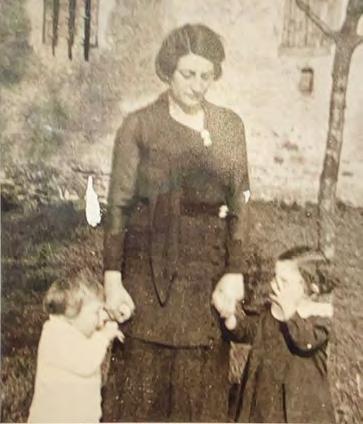
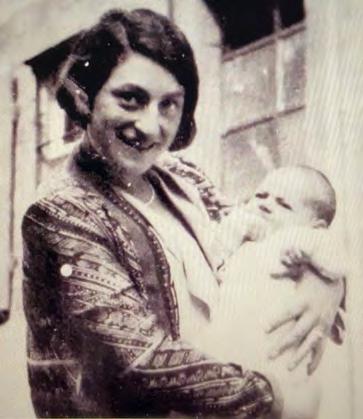
The girls went to live with an aunt and uncle, unrelated to Barbara’s family, in New York City. The aunt and uncle were unkind to the girls, and Jewish Family Service resettled them in Houston where they went on to live full and meaningful lives. Lea died in 2008.

Ruth is absolutely delightful. She is wise, humble and optimistic. She remembered that her grandfather lived in Great Neck, but she didn’t know the circumstances.
My conversations with her have had a profound effect on me, and she is as excited to have found us as we are to have found her.
Despite all that I already knew about the Shoah, she has made my understanding of it more real and personal.
Fellow Long Islander Howard Parker took a DNA test in 2018, not long after I took mine. We were a strong match. I contacted him through Ancestry, and it took us little time to determine that we are second cousins. His grandfather Isaac and my grandmother Esther were brother and sister.
Later that year, I met Howard and his wife, Janice; Howard’s sister, Susan, and her husband, Paul; and Howard’s brother, Barry, and his wife, Marilyn. They really felt like family, as if I had known them for decades. Sadly, Paul died in 2021.
At our first get-together, at the Bayside Diner, I heard Paul’s remarkable story of his role in smuggling survivors of the Shoah to Palestine. Details of his experiences involving close calls, quick thinking and moments of exhilaration can be found online, and in a video interview with the Yiddish Book Center (YiddishBookCenter.org).
At age 17, Paul volunteered for and served in the U.S. Navy in the Pacific Theater during World War II. By 1947, at the ripe old age of 20, Paul was back home in the Bronx, enjoying postwar life, when he received a mysterious phone call.
The voice turned out to be that of a Haganah organizer who asked for Paul Kaminetzky, using the original family name. The man asked Paul if he’d like to help his people. He then told him to go to the corner of East 39th Street and
Lexington Avenue at a certain time the next day and to follow a man with a leather jacket carrying a newspaper. If the man discarded the newspaper, it would mean they had been seen and Paul was to return home.

They met according to plan, and Paul was asked if he would work on boats smuggling Jewish refugees from Cyprus to Palestine. He was told that if caught, he would be hanged by the British. Paul answered, “Let’s go!”
Paul’s first experience, on a rickety vessel with 1,500 Shoah survivors, did not go well. The ship was spotted; and Paul, the crew and passengers were all interned in Cyprus and then transferred to a prison camp in Palestine. Paul escaped and joined with Palmach.
He manned another ship and was onboard with its crew and refugee passengers on the day Israel declared its independence. Those passengers successfully made their way to Israel. Paul later joined the Israeli navy.
In the years following, Paul settled in New York, raised a family and continued with occasional volunteer assignments for the State of Israel.
At Paul’s funeral, I learned that he had been a counselor and color war general in the early 1950s at Camp Lokanda in Glen Spey, New York, where I was a camper about 10 years later.
Paul’s bravery and his dedication to the State of Israel and the Jewish people have been an inspiration. ▶
Before the war, Ruth’s sister, Lea, is held by her mother, Anna Krell. Ruth and Lea Krell survived by living as hidden children in France.
For every family tree mystery that’s solved, others remain unsolved.

Dame Carolyn Hamilton of Great Britain is a fairly strong DNA match with me. Her father, David Hamilton, was a Kindertransport child. Dame Carolyn is an internationally renowned barrister and emeritus professor. She is director of Coram Children’s Legal Centre, a charity devoted to children’s rights. She and I have corresponded extensively, yet we cannot ascertain just how we are related.
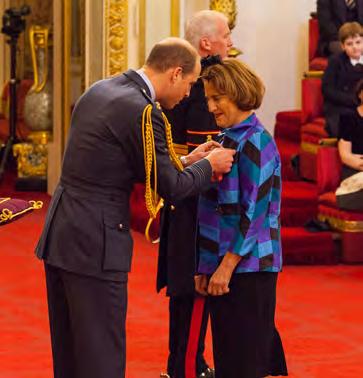
Jacob Wellerstein of Philadelphia shares more DNA with me than some of my known second cousins, yet we have been unable to determine how we are related. His parents were survivors of the Shoah. Sadly, some of his grandparents were not. Consequently, much knowledge of family history was lost to him.


According to MyHeritage.com, Katia Mandelbaum, who lives in France, and I are a fairly strong DNA match. (After taking a DNA test with one company, results can be sent to others, so I sent my Ancestry results to MyHeritage.) I can see on Katia’s MyHeritage family tree that her Mandelbaums are from Poland. I have a few direct ancestors named Mandelbaum from Poland, as well, so this one looked like it might be easier than most to solve. Unfortunately, my efforts to communicate with her have been unsuccessful.
When I submitted my DNA sample five years ago, I had no idea that it would lead to a new hobby, and, more importantly, to developing relationships with many newly discovered family members. I treasure getting to know Ruth Krell Steinfeld and having had the opportunity to know Paul Kaye. Surely, similar discoveries await others who embark on a similar course.
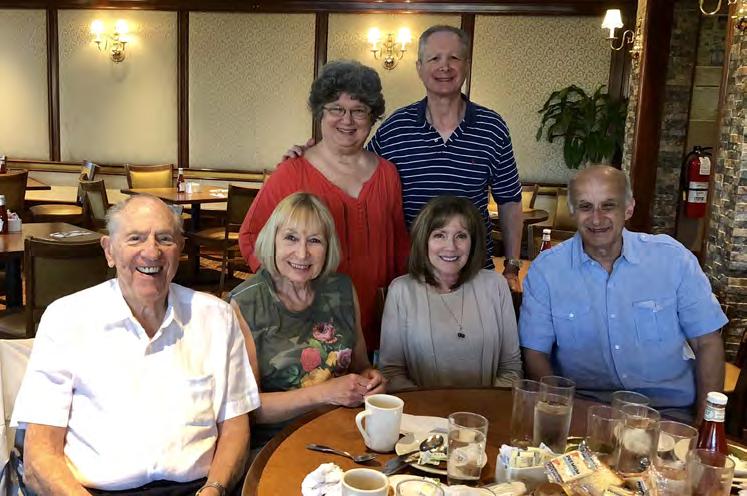 Congregant Howard Herman (standing) meets his cousin’s husband Paul Kaye (left) in 2018.
After serving in the U.S. Navy during World War II, Paul Kaye joined the Israeli navy.
Professor Carolyn Hamilton is made a Dame Commander of the British Empire by William, Duke of Cambridge, at Buckingham Palace.
Paul Kaye (lower left) trains in Caesarea, Israel.
Congregant Howard Herman (standing) meets his cousin’s husband Paul Kaye (left) in 2018.
After serving in the U.S. Navy during World War II, Paul Kaye joined the Israeli navy.
Professor Carolyn Hamilton is made a Dame Commander of the British Empire by William, Duke of Cambridge, at Buckingham Palace.
Paul Kaye (lower left) trains in Caesarea, Israel.
For every family tree mystery that’s solved, others remain unsolved.

Like many people, I have researched my family’s history through a variety of online sources. Over the years, I have found amazing facts and stories about my mother’s, father’s and wife’s family histories—and how they fit into the larger experiences of Eastern and Western Europe, the United States and colonial America. It’s a wonderful and important legacy to learn and pass down.

Here are some resources to help you learn about your family history.
(Ancestry.com) is a paid genealogical tool with about 32,000 individual databases and billions of records. It’s a vital tool for any genealogical research. The free service has limited information, but a full membership for around $230 a year enables access to everything. You can create trees and populate them by searching databases and connecting to other members’ data. Done through a saliva test, AncestryDNA provides ethnicity information and helps you find long-lost relatives by connecting you with Ancestry members who have similar DNA. The site offers nearly 200 years of U.S. Census Bureau records, starting with the first one in 1790 through 1950, along with state census and many slavery records. A relatively new feature allows viewers to see other descendants of shared ancestors. I have been able to view fifth and sixth cousins in my mother’s family. International and newspaper databases are available for

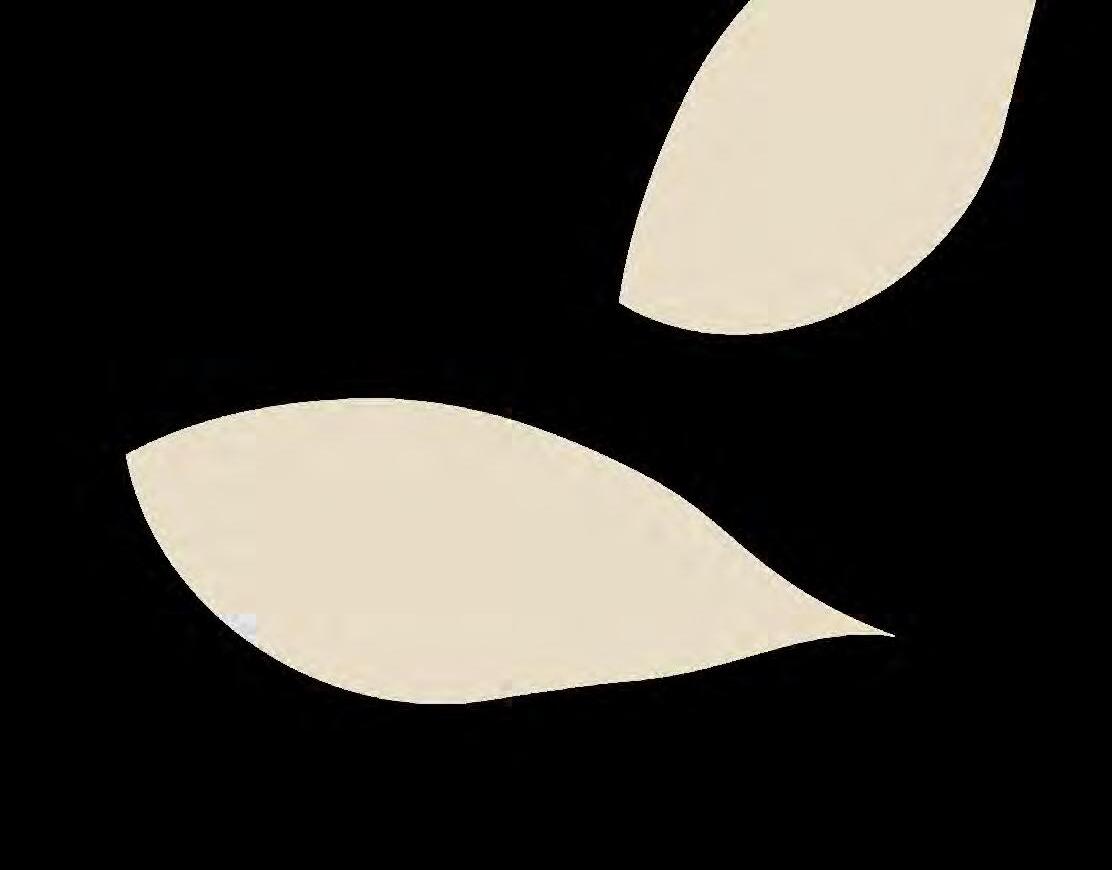


(JewishGen.org), “the global home for Jewish genealogy,” is a research tool with thousands of Jewish databases. Though not nearly as robust as Ancestry, it offers unique information, such as yizkor books, community databases, family finders and more. Using the site is free, but value-added services are available for $100. Nolan Altman, one of JewishGen’s database managers, has been a Brotherhood guest
The Jewish Genealogy Society of Long Island (JGSLI.org) is a membership organization for those interested in Jewish genealogy. JGSLI runs programs, offers lectures, holds meetings and publishes a newsletter and other materials. An overlap exists between this group

Yad Vashem—The World Holocaust Remembrance Center (YadVashem.org) is an amazing resource with biographical data on nearly five million Jews killed in the Holocaust.

The mitzvah or good deed of tzedakah is considered one of the most important commandments that Jews are obligated to observe, and many Temple Beth-El congregants have embraced this obligation by furthering improvements not only in Great Neck but throughout the state and even the country. Some have facilitated change as board members for influential organizations while others have made a difference as gun safety activists or by holding political positions, where they have worked to protect our community and advocate for change. Programs right here at the temple provided the platform that empowered some members to take action. These impressive individuals are enhancing our world—and making it a safer place for all of us. Read on to be inspired by their stories.


Island Rail Road (LIRR) shooting became a catalyst for a sea change in my life.
On Tuesday, December 7, 1993, Rabbi Jerome Davidson asked me to attend an interfaith conference for Long Island clergy. The goal of the meeting was to come up with a central issue that all the faith groups could get behind.
Topics like abortion, poverty and immigration were debated, without much agreement. I was the only woman and lay person in the room. I finally spoke up, timidly, suggesting that the clergy get behind gun control. A monsignor remarked, “Gun violence is an urban problem.” I countered, “The suburbs are no longer a sanctuary, it’s coming our way.”
called Rabbi Davidson and told him that I was going to increase my involvement in gun control. I told him, “I can either go it alone or take the temple with me.” He responded, “Take the temple with you.” And I did.
Carol X. Vinzant’s book Lawyers, Guns and Money is a narrative that follows a survivor of the 1993 LIRR massacre. That survivor, Tom McDermott of Garden City, became my first mentor in spreading the truth about the flood of firearms in this nation. There would be other teachers on
I became involved with gun violence prevention 30 years ago, fearing that a member of my family or I could be the next shooting victim. As an activist, I initially channeled my advocacy work through Temple Beth-El, but the Long
I left the meeting and took the railroad to my work in New York City. On the radio that evening, I heard the news about the mass shooting at the Merillon Avenue, Garden City, station. I sobbed on the kitchen floor for two hours. I then thought, If that is not a sign, what is?
The next day, I couldn’t go to work. I
“I would eventually run and be elected five times to the New York State Assembly and have the NRA label me their No. 1 hated legislator during my tenure. It was a mantle I wore proudly.”
–Michelle SchimelSurrounded by New Yorkers Against Gun Violence supporters holding signs, Michelle Schimel speaks at a rally on the steps of the New York State Capitol.
my journey against gun violence, but in the early days it was Tom.
I first saw Tom on a split TV screen on Sunday morning’s This Week with David Brinkley show. On one screen, Tom was in a hospital bed wearing a sling, recovering from shoulder surgery to remove bullet fragments that just missed his vital organs. The other screen showed Senator Alan Simpson of Wyoming wearing his cowboy bravado.
Senator Simpson said, “Where I live, gun control is how you aim your gun.” Tom, on his screen, countered that the shooting had changed his life and he would do something about guns in this country.
I remember jumping off my chair and pointing at Tom on the TV screen, saying to my family: “See that guy? He’s going to be my friend. I am going to get to know him and we’re going to work together.”
I admit, I was wearing a bit of my own bravado. I thought, This guy is never going to get to know me. He’s already on TV.
Shortly after I wrote to him introducing myself as a fledgling activist, Tom called me. He invited me to my first press conference at the State Supreme Court in Mineola, and subsequently to lobby in Albany one freezing February day with a new group called New Yorkers Against Gun Violence. I was thrust in front of a microphone surrounded by TV cameras and reporters, and I spoke on the need to pass an assault weapons ban. It was both exhilarating and terrifying. For a first foray, I was pleased I didn’t faint.
Alongside me on “stage” was a former nurse from Mineola whose husband was murdered and whose son was severely injured on the LIRR train. Her name was Carolyn McCarthy.
When Carolyn spoke, she had a light within her. Everyone seemed to be drawn to her compelling narrative and honest speaking style. I soon became good friends with her and, fast forward two years, worked with countless others to help her win a congressional seat in the most watched election in years.
Our group of newly minted gun control activists would start making regular visits to Albany. Everything we learned in those
years was self-taught. We never realized how long the struggle would be to take on the gun lobby.
Tom and I collaborated on hosting a Shabbat evening at Temple Beth-El, bringing important speakers regarding the state of gun ownership in America and New York State to the congregants.
The National Rifle Association (NRA) got wind of the talk, and its members decided to show up wearing their hunting clothes. They blocked the steps of the temple to hand out literature covered in swastikas that was filled with arguments spewing information about how Nazis used gun control, implying anyone making guns harder to purchase was emulating the Nazis.
When Tom arrived for the Shabbat service, I ran up to him in the temple lobby, distraught. “Did you see what they are doing to my temple?” I asked.
“It’s OK,” Tom responded. “This is perfect; now people will see what we are up against.”
It became clear to me then that the NRA’s modus operandi is to capitalize on the public’s worst fears.
Tom was able to clear the NRA members from the steps so congregants could enter. The NRA participants sat through the entire service. That night, Tom recounted the LIRR shooting—shot by shot. The sanctuary was quiet, except for sobs.
Tom told the congregation: “The NRA has enormous power and influence in our country. Before the shooting in December 1993, I had no idea of their influence over Congress.”
Let me be clear, the first time I witnessed organized disinformation was in 1994 when the NRA equated the U.S. government with Nazi Germany, as an argument against sensible gun regulations. The disinformation continues in new forms today; they have turned their Nazi argument on its head, embracing white nationalist propaganda as their own.
My freshman class of activists helped propel a Federal Assault Weapons Ban in 1994, only to see it sunset in 2004, and make Carolyn McCarthy a congresswoman. I also witnessed Governor George Pataki sign the first New York State Assault Weapons Ban in 2000 at the Merillon Station where the LIRR shooting occurred.

That day, The New York Times wrote, “Gov. George E. Pataki today signed into law the strictest gun controls in the country.” A stronger bill was enacted in 2012, after the Sandy Hook massacre.
For New York State and me, it was just the beginning; I was a novice no more. I would eventually run and be elected five times to the New York State Assembly and have the NRA label me their No. 1 hated legislator during my tenure. It was a mantle I wore proudly. ▶
Lois Schaffer, activist to reduce gun violence and advocate for sensible gun legislation


community. It can also be considered paying it forward.
My friend Ruth Bader Ginsburg combined these actions. Her perseverance in obtaining gender equality for herself inspired her to give back what she achieved by paving the way for others. “We should learn to do our best for the sake of our communities and for the sake of those for whom we pave the way,” she said. “Fight for the things you care about but do it in a way that will lead others to join you.”
Through my advocacy, I’ve met some incredible people who are quintessential examples of people who have given of themselves. Each of these people has reflected on how they were helped and selflessly reciprocated in meaningful ways.
other families who suffered a similar loss.
The need to address the effects gun violence had on other families around the country became more essential as the nation suffered a myriad of deaths and, worst of all, children’s lives were cruelly eradicated.
In my second book, From Bullet to Bullhorn: Stories of Advocacy, Activism and Hope, I coordinated, wrote and published 18 essays submitted by brave souls who also lost a loved one due to gun violence. The essays illustrated the survivors’ need to tell their story, heal themself and reach out to other survivors.
Long before my daughter, Susie, was senselessly murdered by a gun wielding teenage burglar during a home invasion nearly 15 years ago, I had been a lifelong gun safety advocate and devoted my energies to protecting human rights. Honoring my daughter is one way I can help other parents not suffer the same tragedy.
For me, giving back is a reflective and inclusive expression that connotes choice and a humane, morally and ethically charged action that connects one human being to another. It means reaching out to help someone—a family member, a neighbor or even an acquaintance in the
Even before Susie was shot in 2008, I felt fulfilled by reaching out to someone in need by shopping or cooking a meal, so I wanted to respond in a meaningful way after our family received enormous support from family, friends and neighbors following Susie’s murder.
That notion could be viewed as giving back or reaching out or paying it forward to those who demonstrated kindness and support to me and my family.
My first thought was to increase my advocacy to an even greater degree as an activist and someone who was affected by senseless gun violence. To spread the word, I wrote The Unthinkable: Life, Loss and a Mother’s Mission to Ban Illegal Guns, which was published in 2013. The book describes the effects such a tragedy had on our family as well as on
Inspiration for giving surrounds us. Rabbi Neal Loevinger said: “There will come a time in everyone’s life when a person, or a troubled person, or a desperate person will come to you for help—at that moment, you have a choice, to help or not, to fulfill this basic mitzvah.”
Similarly, Dr. Martin Luther King Jr. said, “Life’s most persistent and urgent question is, ‘What are you doing for others?’”
Giving back and reaching out to others is a moral and ethical choice.
Gun violence has affected the lives of multitudes in our country, including our family. The question is: What can we, as a society, do to save lives, not destroy them?
I will continue to give back to those who have supported my efforts. In turn, I will reach out to others who have suffered the same fate. In essence, it is my fervent hope that this give and take will strengthen human understanding and connections and inspire others to do the same.
“It is my fervent hope that this give and take will strengthen human understanding and connections and inspire others to do the same.”
–Lois SchafferLois Schaffer (right) cherishes this picture with her daughter, Susie, who was senselessly murdered by a gun wielding teenage burglar.
The Sterling family’s involvement with Parker Jewish Institute for Health Care and Rehabilitation began some 30 years ago when my parents, Helene and Dan Sterling, were introduced to the healthcare facility through their relationship with Norma and Jack Parker, as Jack was chairman of the board.
Parker Jewish Institute’s unwavering commitment to compassionate health care resonated with my parents. My father became a trustee of Parker; and during his tenure, I became a board member and assumed an active role within the organization.
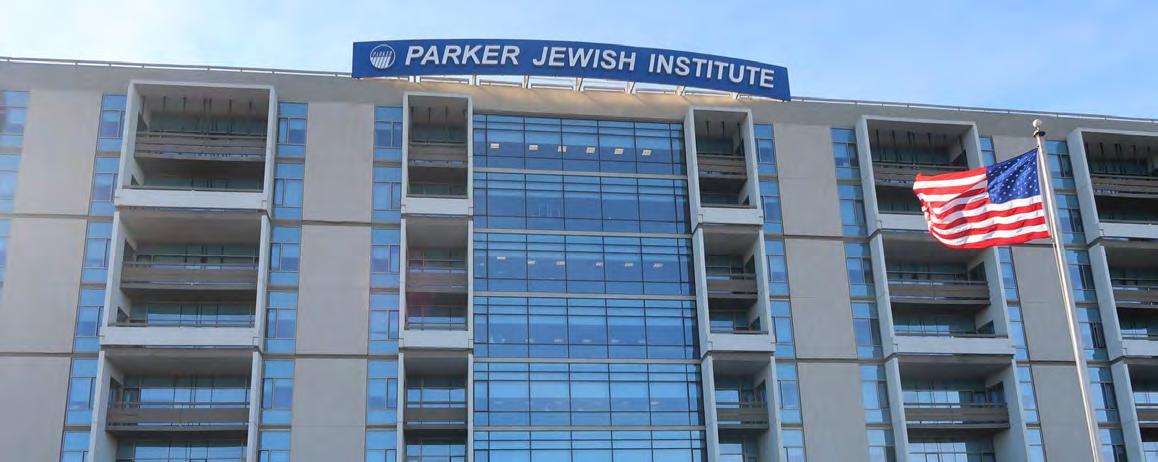
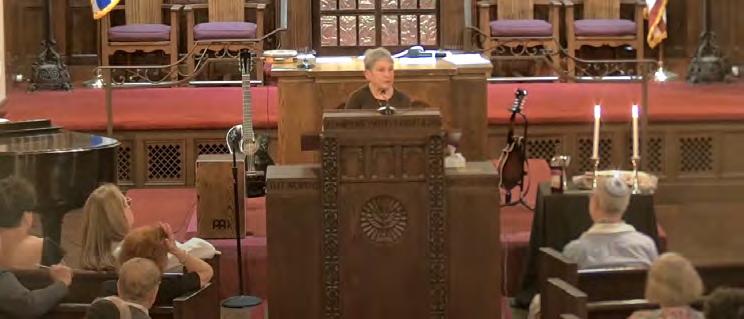
I choose to spend my time this way because I believe in Parker’s mission to be of service to the community.
The institute provides kindhearted care in a warm and supportive environment, bridging the gap between hospital and home. Parker offers skilled nursing/subacute care, along with rehabilitative services, including physical therapy, occupational therapy, speech therapy, pulmonary rehabilitation and palliative care.
As chairman of the board, I assist Parker with high-level management and financial decisions that focus on its mission.
Throughout the years, my family has experienced the excellent level of care that Parker provides. Most recently, my dear mother, Helene, who is suffering from dementia and Parkinson’s, and is too frail to bring to a doctor’s office, was able to access Parker’s home physician visiting program, Parker at Your Door. What a blessing that was!
The Queens-Long Island Renal Institute similarly offers dialysis services from both Parker and patients’ homes.
The institute’s mission and work are a full expression of tikkun olam, and I am proud to be a part of it. My current position as chairman of the board was inspired by my beloved father, Dan, of blessed memory.
My family’s commitment to Parker has been passed from generation to generation, a true example of l’dor v’dor. My parents shared their rituals, traditions and knowledge, upholding the customs and values of our family—and that of Parker.
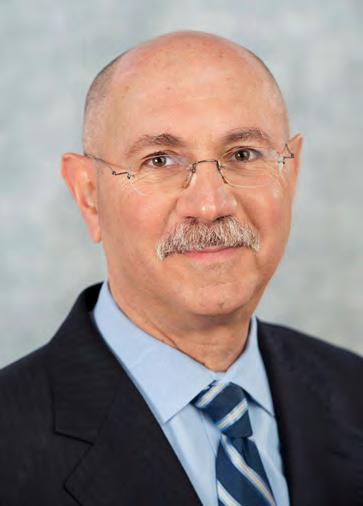 Bob Sterling, president of Stockbridge Risk Management, Inc.; chairman of the board, Parker Jewish Institute for Health Care and Rehabilitation
Bob Sterling, president of Stockbridge Risk Management, Inc.; chairman of the board, Parker Jewish Institute for Health Care and Rehabilitation
“Parker’s mission and work are a full expression of tikkun olam, and I am proud to be a part of it.”
–Bob SterlingBob Sterling dedicates his time to Parker because he believes in its mission to be of service to the community by providing compassionate health care in a warm and supportive environment. The gun safety activist presents a guest sermon, sharing her tragic story, at Temple Beth-El’s Erev Shabbat service.
Thank you for taking the time to share your story with our TBE family. Tell us about your journey to Great Neck and Temple Beth-El.
I was born and raised Catholic in St. Louis, Missouri. After college, I taught at Catholic Girls High School there before going back to school for my master’s degree in Theater Arts at Catholic University of America in Washington, DC. It was well-known for its theater program at the time. Eventually, I came to New York in search of a job.
So, Mary Alice comes to New York. Broadway, New York theater—here you come!
In thinking about my career path, I reasoned that television had so many hours to fill, while Broadway theaters could go dark…so television was where I headed. I came to New York with a few contacts; and in 1968, I got a position as assistant to a game show producer. Really, I was a glorified “gofer”! We worked on shows including Personality, Eye Guess and Pyramid, which eventually became $100,000 Pyramid. I was actually a contestant on the pilot of Pyramid!
That was a golden age for game shows. What did you do next?
Eventually those shows were canceled, and I went to work for an animation company that produced holiday specials including Rudolph the Red-Nosed Reindeer, Santa Claus Is Comin’ to Town, Frosty the Snowman, etc. While there, I produced an animated series for syndication, Festival of Family Classics, and worked on Saturday morning series including The Jackson 5ive.
Mary Alice Dobbin was born in St. Louis, Missouri. She and her husband, Leon, z”l, joined Temple Beth-El in 1991. She is a regular at Saturday morning Torah study.

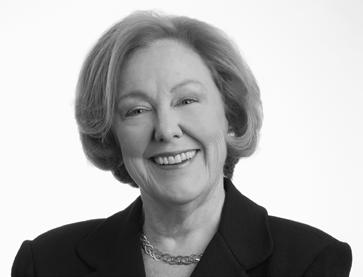
Saturday morning cartoons—and sugary cereal—are part of every Generation Xer’s good memories! This feels so close to home for many of us. From there, I went to work in network programming at ABC—first in daytime, where I was involved with soap operas; and then in children’s, where I was responsible for ABC Afterschool Specials and involved with School House Rock! As happens in the revolving doors of the television business, a former boss went to NBC—and so did I, bringing The Smurfs to Saturday morning.
Many of us can recall the little blue characters, and the lessons they taught us. It seems like the early ’80s was a big time for television, especially for women and children. In researching our shows, it was evident that daytime programming, especially soap operas, was a very important part of women’s lives at that time. Often when families gathered, the conversation of three generations—mothers, daughters and granddaughters—would center around the characters and their conflicts. The audience knew the characters as well as their own family members.
From NBC, I went to Daytime, the women’s channel, which became Lifetime, where I was vice president in charge of programming. I brought Dr. Ruth to live television! After that, I went back to ABC and daytime, where I worked on game shows, talk shows and soaps, including General Hospital, All My Children and One Life to Live. Then, I worked for Procter & Gamble Productions and was in charge of Guiding Light, As the World Turns and Another World.
Wow, your work is a huge part of modern-day pop culture and Americana! A lot of those shows are no longer on though. Times have changed and so has television—more women are working outside the home, and there are so many more viewing options. Are these some of the things that impacted the types of shows airing today? One of the events that hastened the demise of the daytime soap was the O.J. Simpson trial, a real live soap opera. Until then, there was never a day off: no repeats, no summer hiatus, five days a week of neverending stories. When the O.J. Simpson trial captivated the country with live coverage, soaps were interrupted for six weeks—and daily viewing habits were broken, never to return with the same devotion.
Your professional journey is so interesting. Is there a parallel story about your journey to Great Neck and Temple Beth-El?
I met my husband, Leon Dobbin, while working for the game show producer whose shows were on NBC. Leon and I were married in 1973. My career kept me busy 24 hours a day, 7 days a week. He used to jokingly give me a hard time about not being Jewish. He said he was waiting for me to find the light. I assured him that when I had time to study, maybe I’d work on it.
Leon’s son and daughter-in-law, Dean and Leslie Dobbin, were active members of TBE at the time. We frequently joined them at High Holidays services, where I was especially appreciative of Rabbi Davidson’s sermons. When we moved to Great Neck in 1991, I thought it was important to have temple membership, and that’s when we joined. We were not active members, but we were here for High Holidays and special events.
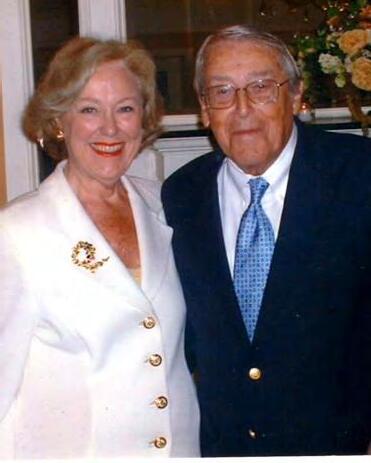
I retired in 2006; and in 2009 while attending High Holidays services, our then rabbi educator, Lisa Rubin (who’s now at Central Synagogue), spoke convincingly about not putting off until tomorrow what you need to do today.
This began my formal journey to becoming Jewish. As part of the adult educational offerings at TBE, there was an Introduction to Judaism course. I said, “Here it is. I have the time. I better do it.” It was quite an excellent, very scholarly course with a thoughtfully developed syllabus taught by Rabbis Rick Shapiro, Devorah Marcus and Lisa Rubin. Along the way, I started studying privately with Rabbi Marcus; and it was at that time that I started coming regularly to Torah Study, which I have continued to this day.
I converted to Judaism on September 1, 2009; Leon passed away in 2010, so he got to see it happen. On that day, I went to a mikvah on the Upper East Side. It was a very spa-like, moving experience. Rabbis Devorah Marcus, Lisa Rubin and Tara Feldman, as well as Leon’s daughterin-law, Leslie, were all part of the beit din for my formal conversion process. My attraction to Judaism was much more on an intellectual level than an emotional one. I value the history and the intelligence and the ethics of Judaism.
From Luke and Laura and Erica Kane to The Smurfs and School House Rock! to Dr. Ruth to Torah Study, thank you for sharing your journey with us. Beyond the synagogue, what are your other interests and what motivates your community involvement?
I’m not a joiner. I’ve had enough meetings and talk in my career. I am fortunate that I can give back philanthropically and help people and entities that have given to me over the years.
Supporting TBE in a special way is important to me. I am troubled by the existence of food insecurity, especially in our geographic area; and, so, I support the TBE Brotherhood annual food drive, along with other local food programs. I also support TBE’s special music events.
I believe that education is important; and over the years, I have supported my alma mater, Webster University, including endowing a scholarship in Stage Management. And because of my theater background, I support The Public Theater
and New York Theatre Workshop, two groups that present creative works which strive to reach—and hear from—a variety of diverse voices and examine subjects of importance in the world today.
Mary Alice, we are fortunate to have you as a part of our synagogue family. Any final things to share about being a part of Temple Beth-El?

One of the special qualities that I value at TBE is the sense of community here. I’ve made good friends both at Torah Study as well as on a TBE visit to Israel in 2014. And I value the learning, particularly in Torah Study, where the learning comes not just from the rabbi but frequently from the participants as much as from the weekly parashah and the rabbi’s daf
High Holidays services are also important for me: from opening prayers to the final blast of the shofar—along with the thought-provoking sermons, the moving musical contributions from the cantor and choir, and our TBE president’s offering, which I always find impressive.
While I do not attend Friday night services on a regular basis, I appreciate the availability of the rabbi’s sermons online. I also enjoy the special musical services, which are frequently challenging but always interesting. All in all, I am grateful that Temple Beth-El is here for me.


Nothing beats family time and celebratory dinners with treasured classics. In this column, our congregants and staff share cherished recipes for favorite sides, soups and mains, along with explanations about why this festive food is meaningful. Recreate the distinctive delight of family celebrations and elevate everyday meals by serving these dishes all year long.
The scent from this recipe will definitely bring joy and warmth to your home—and to your senses. Each time I make this dish, it transports me back to when I was little and would prepare it with Grandma Anna. Her Noodle Kugel continues to evoke extra-sweet holiday memories, and I hope it brings comfort to your family, too. The ingredients can be adjusted to accommodate dietary restrictions: Gluten-free egg noodles can be substituted for regular egg noodles; and margarine can be used instead of butter. If you have any leftovers, they can be frozen and reheated to make any meal extra special.
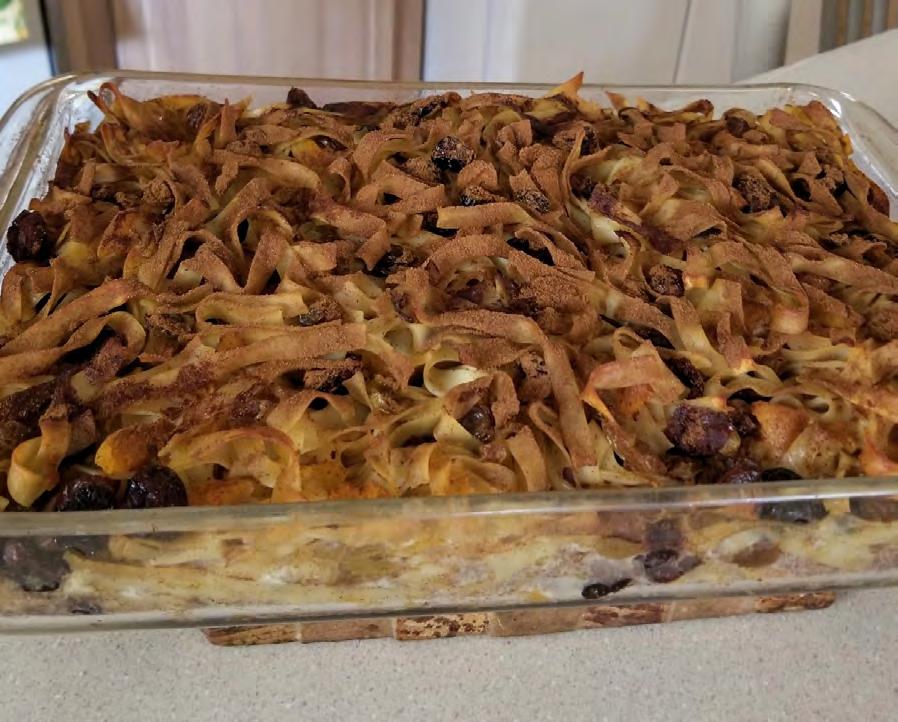
7 oz golden raisins
1 cup dried cranberries
12 dried apricots, cut into raisin-size pieces
12 oz egg noodles
5 eggs
1/4 cup orange juice

4 tsp butter, broken into small pieces
1/2 cup sugar
2 Tbsp cinnamon, plus more for sprinkling
1. Soak the raisins, dried cranberries and apricot pieces in water for about 15 minutes; then drain.
2. Preheat the oven to 350F. Meanwhile, cook the noodles according to package directions and drain.
3. In a medium-size bowl, beat the eggs and add the orange juice, butter, sugar, 2 tablespoons of the cinnamon, dried fruit and noodles. Mix with a large spoon until the ingredients are evenly blended.
4. Pour the mixture into a 71/2 x 11–inch glass baking pan that has been greased or sprayed with oil. Sprinkle more cinnamon on top and bake for about 45 minutes.
5. When the top is lightly brown, remove from the oven, let cool and cut into pieces. Transfer to a serving platter and enjoy!






If you want your family to come home for all the holidays, in addition to preparing a few new things to make each meal exciting, you need to include some favorites that keep bringing them back. I have been serving this Cauliflower Popcorn for every holiday for many years because I know everyone likes it.

This recipe is a perennial favorite, and I make it yearround. Especially when the cauliflower is just slightly overcooked, you can really pop these vegetable bites into your mouth, which my kids do—and there’s never any left. This is my daughter Melissa’s favorite dish, and she could eat the entire bowl in one sitting.
To save time on celebration day, you can prep the cauliflower the day before and refrigerate it. Then simply place the pieces on a baking sheet to cook.
1 large head cauliflower, cut into medium-size florets, stems discarded
6-8 Tbsp olive oil
2 tsp sugar
1/4 tsp onion powder
1/4 tsp garlic powder
1/2 tsp paprika
1/4-1/2 tsp ground tumeric
1. Place the cauliflower, oil and seasonings in a resealable bag. Shake the sealed bag to coat the cauliflower with the spices. If you’re not cooking it now, refrigerate.
2. To cook, preheat the oven to 450F.
3. Line a baking sheet with parchment paper and place the cauliflower on the sheet in a single layer. Roast uncovered for 30 to 35 minutes, until the largest pieces can be pierced with a fork. If the tops start to brown, turn the pieces over. When cooked to desired doneness, remove the tray from the oven and spoon the cauliflower pieces into a serving bowl.
This Addictive Brussels Sprouts Salad is also a favorite, especially since none of the girls in the house eat meat.
When my son brought home Leah, his future wife, I was intrigued when she mentioned that Brussels sprouts were her favorite vegetable. I found this recipe, and it became an overnight hit. Everybody thinks it’s sensational, so I make this salad for my daughter-in-law at every holiday meal.
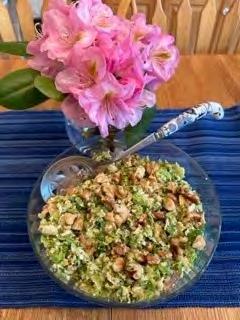
I recently prepared it for a regular dinner and my husband’s eyes lit up. He happily gobbled it up over the next three nights.
24 Brussels sprouts, hard ends trimmed off and discarded
9 Tbsp extra-virgin olive oil
3 Tbsp apple-cider vinegar
2 tsp Dijon mustard





1/2 tsp sugar
1/2 cup Parmigiano-Reggiano, finely grated


1 cup shelled toasted walnuts, in pieces
1. Place the Brussels sprouts in a food processor and shred. Transfer the shredded sprouts to a serving bowl.
2. In a separate bowl, combine the olive oil, apple-cider vinegar, Dijon mustard and sugar.
3. Pour the dressing over the salad and toss thoroughly. Sprinkle with cheese and walnuts. Toss again and serve. ▶
Olive or vegetable oil
1 medium onion, diced
3 lbs potatoes, peeled and cut into small wedges
4 lox wings and 1/2 lb lox chunks or 2 salmon spines and 1 lb lox chunks

1 Tbsp flour (optional)


Salt and white pepper, to taste

1. In a 6-quart pot, add a little oil and sauté the onions until translucent.
2. Place the potatoes in the pot, toss with the onions and cook for 5 minutes.
3. Add enough water to cover the potatoes and bring to a boil. Cook until almost soft, around 15 to 20 minutes.

I was a little girl when we moved into our apartment in Queens. As the first Rosh Hashanah and Yom Kippur approached, my mother and our new neighbor were talking about the foods they served for the holidays. Our neighbor mentioned that her family broke the Yom Kippur fast with Lox and Potato Soup.

This sounded like a dish we would love, so my mother asked her for the recipe. As in many families, the instructions were passed down and our neighbor didn’t have written directions, but she created them for us. It became a family favorite, and each year we looked forward to breaking the fast with this hot bowl of soup. I continue to make it for the holiday—and enjoy it throughout year, too.

The recipe calls for lox wings, but as they became harder and harder to find, mom used lox pieces. Because the bones from the wings gave the soup so much flavor, I experimented and found a perfect substitution. In the appetizing section of a Russian grocery, I saw chunks of lox, as well as salmon spine bones, which had a little flesh on them. I bought two spine bones, and they made the soup taste just like I remembered.
It had been years since my mother was able to find lox wings, but recently I was thrilled to spot them in a Russian supermarket in Rego Park. The wings have some fish on them, which adds flavor to the soup.
To thicken the soup using the flour, make a roux by filling a glass with warm water, mixing in the flour until blended and adding it to the pot of cooked potatoes. If you prefer to make a gluten-free version, remove half of the potatoes from the pot and set aside. Use an immersion blender to puree the potatoes remaining in the pot of water. Simmer over mediumlow heat for around 15 minutes until it thickens.
5. Return the potato chunks to the pot and add salt and pepper to taste, remembering that the fish is salty. Add the lox wings or fish spines, breaking the spines in half to fit in the pot, and cook for around 10 minutes. Add the lox chunks to the flavored broth. When the lox turns pink, the soup is cooked.
6. Remove the wings or spines from the pot, scrape the fish off the bones and return the meat to the pot. Discard the bones. Ladle the soup into bowls and enjoy!

4 Tbsp oil
4 lbs bone-in beef short ribs, cut in 3-inch pieces
Salt and pepper
1 large onion, chopped
3 cloves garlic, chopped
10 sprigs thyme
1/4 cup flour

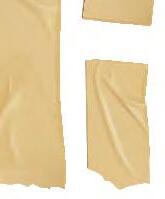
3 cups pomegranate juice

1 cup dry red wine

1. Preheat the oven to 275F. Meanwhile, heat 2 tablespoons of the oil in an oven-safe pot. In a large bowl, season the short ribs with salt and pepper, and toss. Place the short ribs in the pot and brown on all sides. Once browned, remove the ribs from the pot and set aside.
2. Heat the remaining 2 tablespoons of oil in the pot and add the onion, garlic and thyme. Cook until the onion is softened. Add the flour and stir. Whisk in the pomegranate juice and red wine, and bring to a boil, stirring frequently. Return the ribs to the pot and place in oven.
3. Bake for around 3 hours, until the ribs are soft. When cooked, transfer the ribs to a platter. With a spoon, skim the fat from the liquid and then boil until it’s reduced to a sauce-like consistency. Season the gravy with salt and pepper, pour it over ribs and serve. ▶
I look forward to making this recipe during the holidays—it’s a family favorite. As the caterer of W Kosher Events at Temple BethEl, many of our congregants have ordered these short ribs from our holiday menu, and it’s become one of their family’s favorites, too.

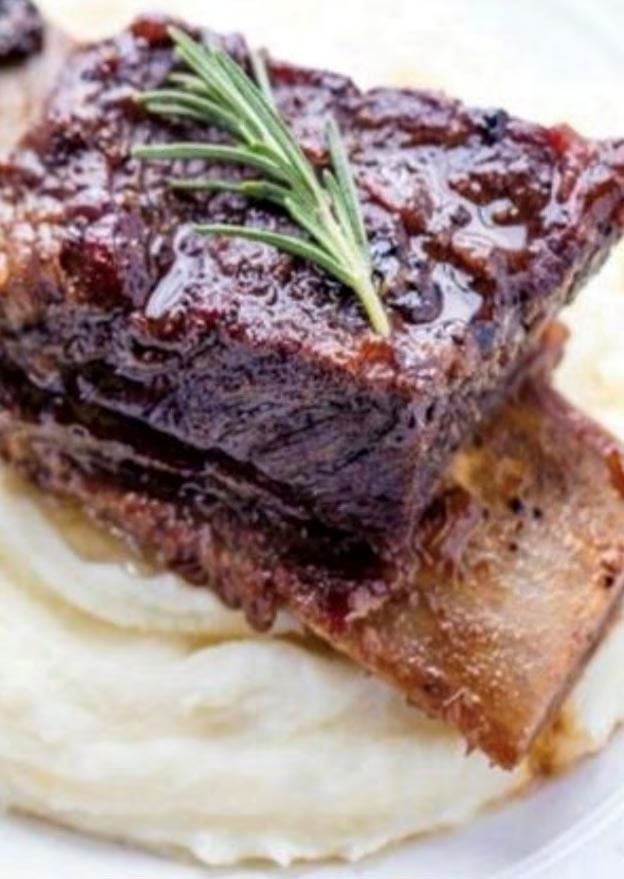
To make this dish gluten free or to serve it during Passover, substitute potato starch for the flour.
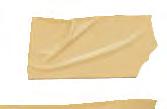

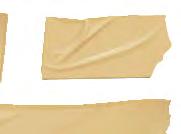
This has been one of my family’s favorite dishes for Passover and Rosh Hashanah. Everyone loves the complex mixture of flavors. The recipe calls for the chicken to be prepped a day ahead, making holiday cooking less hectic. Plus, marinating overnight enhances the flavors.
4 (2 1/2-pound) chickens, cut into 8 pieces each
1 head garlic, peeled and finely pureed
1/4 cup dried oregano
Coarse salt and freshly ground pepper, to taste
1/2 cup red-wine vinegar

1/2 cup olive oil
1 cup pitted prunes
1/2 cup pitted Spanish olives
1/2 cup capers with a bit of juice
6 bay leaves
1 cup brown sugar
1 cup white wine
1/4 cup Italian parsley or cilantro, finely chopped
1. In a large bowl, combine the chicken, garlic, oregano, salt, pepper, vinegar, olive oil, prunes, olives, capers and juice, and bay leaves. Cover with plastic wrap, let marinate and refrigerate overnight.
2. Preheat the oven to 350F.
3 In one or two large shallow baking pans, arrange the chicken in a single layer, and spoon on the marinate evenly. Sprinkle on the brown sugar and pour the white wine around the chicken pieces.

4 Bake for 50 minutes to 1 hour, basting frequently with the pan juices. The chicken is cooked when the thickest thighs pierced with a fork yield clear, not pink, liquid.
5. Using a slotted spoon, transfer the chicken, prunes, olives and capers to a serving platter. Moisten with a few spoonfuls of pan juices, and sprinkle generously with parsley or cilantro. Place the remaining pan juices into a sauceboat for passing.


My friend gave me this recipe more than 40 years ago. I have been making it for every seder since—and there are hardly ever any leftovers.
To prepare this dish dairy free or to make it a bit lighter, you can substitute margarine for the butter or reduce the amount of butter to only a half pound.
1 large and 1 medium can sliced sweetened peaches
1 lb matzo farfel

7 eggs
3/4 lb butter, melted
1 tsp vanilla
3/4 tsp salt
1 cup plus 1/4 cup sugar, divided
1 Tbsp cinnamon
1. Drain the peaches. Save the peach liquid and add enough water to make 11/2 cups.
2. In a large colander, pour boiling water over the matzo farfel to moisten; and then drain.
3. In a large bowl, beat the eggs, add the melted butter and mix. Stir in the peach liquid, vanilla, salt and 1 cup of the sugar. Fold in the moistened and drained farfel; mix to combine.
4. Place half of the matzo-farfel mixture into a 9 x 13–inch casserole dish. Layer half of the peach slices on top. Smooth on the remaining matzo farfel mixture and layer with the remaining peaches. In a small bowl, combine the 1/4 cup of sugar with the cinnamon. Sprinkle the sugar-cinnamon mixture on top of the casserole.
5. Place in a 375F oven with a tray beneath the casserole, as it sometimes overflows, and bake for 1 hour.
Cut into 16 pieces and transfer to a serving plate.

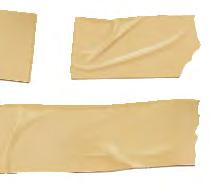

 By Jennifer Still-Schiff
By Jennifer Still-Schiff
Ellis Island has an almost mythological mystique for those of us, comfortably distant, whose forebears made it to this country through its doors. Jewish immigrants from Europe who flocked to New York brought with them their beliefs, superstitions and folktales.
Though fascinating, these journeys begin to blend together in our imaginations, because we have heard so many of the stories.
A new award-winning novel by Sacha Lamb challenges the reader to rediscover the Lower East Side through the eyes of two extraordinary and otherworldly characters.
Lamb brings the immigrant experience into new focus, with delightful characters and a sympathetic but witty narrative voice. The story unfolds during a monthlong mission around the turn of the century, dealing with love in many forms, self-knowledge and transformation, and what it means to do the right thing.
Little Ash is a demon who lives with a chevrusa, a study partner, in a shtetl in Poland. His companion, an angel, is continually renamed for its current mission: As the book opens, the angel’s name is Argument. This pair, which has occupied a quiet corner of the shul for generations, is concerned by the number
of young people who are emigrating to America. Although Little Ash has very few demonic powers, he can make mischief more effectively among ambitious youths, and these young people are in dwindling supply.
When they overhear the elders speaking about a missing daughter— who ought to have written from New York by now—they set out to look for Essie. The demon is engaging on an adventure for his own entertainment; the angel is committed to doing a mitzvah
Once aboard the ship, the two are befriended by humans. Rose Cohen is a strong, driven girl of 16, who “had been told more times that she was unladylike
than that she was pretty.” Rose has been disappointed by her best friend, who decided not to emigrate but to remain in their village to marry a Torah scholar. Heartbreak fuels Rose’s determination to succeed in New York.
They find themselves thrown together with an older woman who is worried about her family’s prospects in the new world, crowded in steerage with the many children who are free to roam belowdecks. The angel is also carrying a ghost who is desperate to get to his daughter before sheloshim is over, so that she can say kaddish and release him to the next life.
In this novel, the reader meets not only demons, ghosts and an angel, but also a dybbuk, sticky with bad luck, and an assortment of gangsters, sweatshop unionists and revolutionaries.
The story seamlessly includes gender fluidity and queerness, which turns out to be unsurprising, when we realize that nonconformists might have been more likely to leave the old country for new opportunities.
For fans of Pratchett and Gaiman’s Good Omens, this is a must read; bibliophiles ages 13 and older with an interest in the Jewish-American immigrant experience and a touch of magic will add this award winner to their shelf of favorites.

Our Temple Beth-El clergy, staff, lay leaders and committees have spent countless hours creating a year-out calendar of engaging activities, exciting events and informative meetings, including enriching learning opportunities, worship services, holiday celebrations, musical engagements, fitness opportunities and ways to help others. To find out about upcoming programs for all ages and interests throughout the coming year, please visit our website at TBEGreatNeck.org/news/calendar.
Jacalyn & Andrew Aaron
Leslie (z”l) & Ronald Barshop
Sandra Atlas Bass & Morton M. (z”l) Bass
Brotherhood of Temple Beth-El
Elaine & Daniel Brownstein
Bonnie & David Cantor
Joyce & Steven Charno
Karen B. & Arthur G. (z”l) Cohen
Jill & Lee A. Corson
Abby & Andrew Crisses
Serena & Robert Cummins
Barbara & Maurice A. (z”l) Deane
Ruth Ann Drucker
Iris & Stephen Feldman
Louise & Fred Feldman (z”l)
Susan & Alan Finkelstein
Marjorie Gershwind Fiverson
Andrea & Robert Fortunoff
Jackie & Erik Gershwind
Mark Gershwind (z”l)
Judith & Frank Greenberg
Rosalie & Herbert Greenberg (z”l)
Helen & Alan Greene
James Greene
Phyllis & Joseph (z”l) Gurwin
Heidi & Richard Horowitz
Eleanor & Irving (z”l) Jaffe
Sandra & Bruce Kafenbaum
Florence & Robert (z”l) Kaufman
Ruth & Alfred Koeppel (z”l)
Gloria & Jerry Landsberg
Lilo & Gerard Leeds (z”l)
Sylvia & Louis Lester (z”l)
Carol (z”l) & Lawrence S. Levine
Marjorie Boas Levins & Jack Levins (z”l)
Joan & Alan Libshutz
Shelley & Stephen G. Limmer
Ruth & Leonard Litwin (z”l)
Nancy & Marvin Lynn (z”l)
Meryl & Michael Mann
Nancy Marks
Joyanna Marx
Susan & Herman (z”l) Merinoff
Rona & Sidney A. Miller
Sue & Steven North
Laura (z”l) & Steven Pegalis
Lois & Robert Pergament (z”l)
Ruth & Myron Pomerantz (z”l)
Hannah & David Rabinowitz
Beverley & Morton Rechler (z”l)
Bonnie & Bennett Rechler
Linda P. Rice
Jane & H. Richard Roberts
Ellen Ross
Marvin Ross
Edie & Marvin H. Schur
Angela (z”l) & Martin Schwimmer
Joan & Jerome (z”l) Serchuck
Phyllis & Howard Silverman
Sisterhood of Temple Beth-El
Sobelman-Siegel Family
Joan & Rollin Sontag (z”l)
Joan & Michael Harris Spector
Emily & Jerry Spiegel (z”l)
Amy & Charles Spielman
Joan & Arthur M. (z”l) Spiro
Ann Stanislaw (z”l)
Louise & Michael Stein (z”l)
Helene & Daniel (z”l) Sterling
Susan (z”l) & Mark Stumer
Jerry Tilles (z”l)
Roger Tilles
Rose & Gilbert Tilles (z”l)
Sandra & Howard (z”l) Tytel
Jan and Michael (z”l) Wallace
Barbara Packer & Ira Weinstein
Joanne Wolff
Michael Wolff
Renée & Michael S. (z”l) Zarin
Jane L. & Ronald M. Zimmerman
Life Members of Temple Beth-El of Great Neck are pillars of our Jewish community and have each made a significant one-time financial commitment. This support provides essential resources, and these donors are granted membership for life.
Interested in learning more about our Life Membership program? Contact Executive Director Stuart Botwinick at sbotwinick@tbegreatneck.org or 516-487-0900, ext. 107.
We stand on the shoulders of those who came before us: our leaders, our role models, our parents, our friends. To whom will the next generation look? Leaving a legacy gift to Temple Beth-El ensures our future. It tells our children that what we do at TBE matters.
We are so pleased to offer the opportunity for our members to become part of the Rabbi Jacob P. Rudin Legacy Society, which recognizes those who have promised or given a gift beyond their lifetime. Thanks to the generosity of the Nedjat Eshaghoff Foundation,
and dedicated by Nedjat and Eliza Eshaghoff, the names of Society members are now beautifully displayed on the donor wall at the top of the main staircase.
Please be in touch to learn more. If you’ve already included the temple in your will or trust, please let us know so we can recognize you and show our appreciation.
Contact Stuart Botwinick, executive director, at sbotwinick@tbegreatneck.org or 516-487-0900, ext. 107.
ACROSS
Glasgow gal
Digs in Israel
Spiff (up)
Weather: it rains
__ pours
Where the Tigris meets the Euphrates
"Off ___ ____ the wizard..."
Comey on Clinton, e.g.
Suffix for "eater"
Branch of Islam
Some explosives
-y, pluralized Surfer's "dude"
Kurt Weill/Maxwell
Anderson standard
Jewy phooey "Buona ___!"
Jackson, Lightning Thief Panache
Name for a fish?
____ Hu, seder tune
_____ of Attraction, Bret
Easton Ellis novel
Scintilla
WNW's opposite
Month of The Raven
Noun suffix
Age Beach we reached on 57 Across
See 57 and 67 Across
60 Org. cof-ounded by W. E. B. Du Bois
64 Remember, remember the date of Guy Fawkes' Day
67 Beach we reached on 57 Across
68 Where the Jeffersons moved
69 Queen of Jazz
70 Drier
71 Warren Beatty 1981 epic
72 unless, poetic DOWN
1 ends where it starts
2 supports cathedrals
3 Hindu goddess
4 Cheap cigar
5 draw
6 shows one's humanity?
7 eye or whip
8 merged with Bristol-Myers in 1989
9 gas additive brand
10 It's between Scotland and Denmark
11 F __ __ France
12 __ for life
13 Catch them napping
18 The sounds you wait for
19 Welsh bit
24 Cholent, e.g.
26 Sculptor Jean
27 Oil-yielding rock
Pitcher's stat
Catch them napping
29 Opposite of depressive
30 Give it to a waiter
31 Long-running TV crime drama
32 Where the falcon can't hear the falconer
33 Phineas's bro
34 Month leading up to Rosh Hashanah
38 "___ ___ halo of a street lamp..."
40 A deer. A female deer.
41 Challenge: Come ___ ___!
44 Go downhill
46 You might pick this with someone
50 "Is this the ___ ____ our heroes?"
51 Canine coat?
54 ET rides
55 Measured by our moon?
56 Not near
58 She of Green Gables
59 "___ be amazed"
61 Equal to the task
62 Painted animation frames
63 Kind of fall
65 Hebrew mountain
66 Nixon and Ford, once: Abbr.
Oil-yielding rock Pitcher's stat
Sculptor Jean
for life Catch them napping The sounds you wait for Welsh bit Cholent, e.g.
France
Remember, remember the date of Guy Fawkes' Day Beach we reached on 57 Across Where the Jeffersons moved Queen of Jazz Drier Warren Beatty 1981 epic unless, poetic DOWN ends where it starts supports cathedrals Hindu goddess Cheap cigar draw shows one's humanity? eye or whip merged with Bristol-Myers in 1989 gas additive brand It's between Scotland and Denmark
Org. cof-ounded by W. E. B. Du Bois
Mazel Tov to congregant, high school English teacher and musical theater lyricist Len Schiff for winning third place from the Press Club of Long Island (PCLI) in the Narrative Arts category for his story “Super Chutzpah: Talking Comics and Jews with Michael Freeman,” which appeared in Temple Beth-El’s fall 2022 Shema magazine.

To get the inside scoop about Jews and comics—and Jews in comics—Len spoke with industry vet and TBE member Michael Freeman, whose childhood fascination with Judaism and comics is an essential part of his origin story. The conversation focused on the creators behind the comics Michael loved, which ignited a lifelong fascination that lead to a career in publishing—from Marvel and DC Comics to Disney.
In 2021, Shema magazine also won PCLI’s third place award in the Best Magazine category for the winter and fall 2020 editions. The award was granted to Len for his role as editor, along with Managing Editor Sheri ArbitalJacoby and Executive Director Stuart Botwinick.
In our tradition, when saying “Happy Birthday,” people may wish their loved ones the blessing that they live to be 120 years old. Few will see this age, and everyone will one day face the reality that our earthly journey will come to an end.
The sages of the Midrash, the early interpreters of the Torah, had important wisdom for thinking about our end of days. In fact, they advise us to purchase a burial plot even while we are still alive and well. It is sometimes said that doing so will actually bless one with a long life. On a more practical level, purchasing a grave avoids a burden for a loved one. Sometimes this is a parting gift to those around us.
Our Temple Beth-El family is blessed to have its own sections of the Beth Moses Cemetery in Farmingdale. In the coming year, the purchase price for our plots will increase as we continue investing in care and upkeep of the property.

Please consider purchasing graves for your family. Plots are only available for purchase by temple members, but can be used for your extended family. Single graves are available, and there are also plots for any number of graves, including 20+. Stuart Botwinick, our executive director, is happy to tour the grounds with you.
For additional information, please contact Joy Palevsky in the main office at jpalevsky@tbegreatneck.org or 516-487-0900, ext. 110.





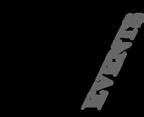
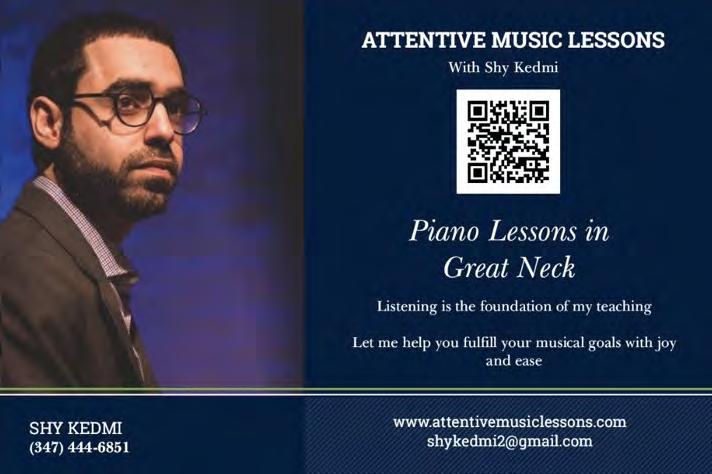
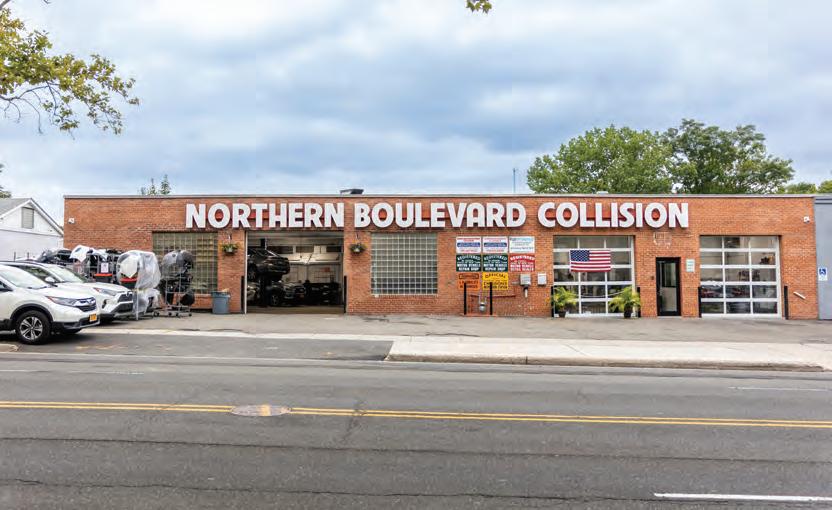









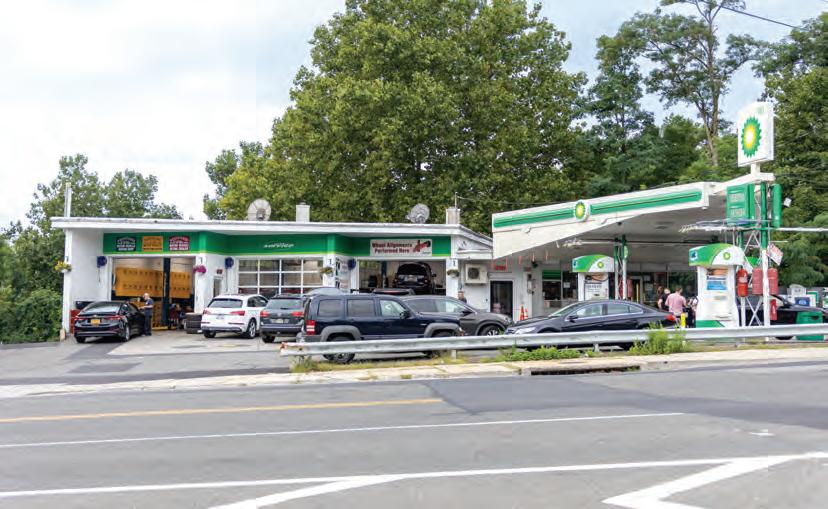







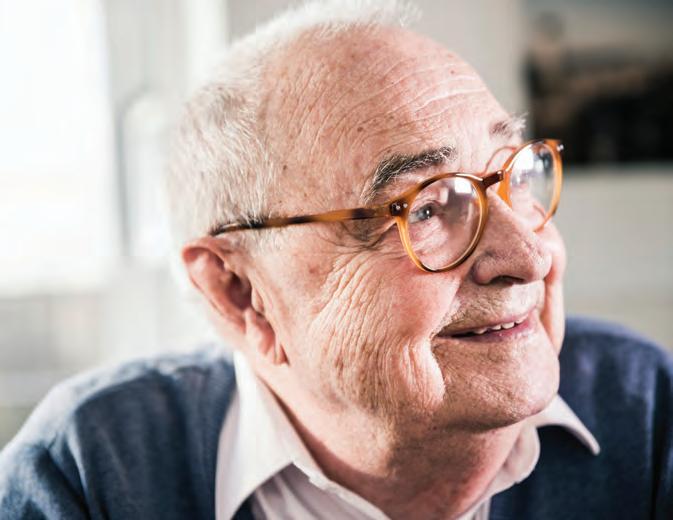



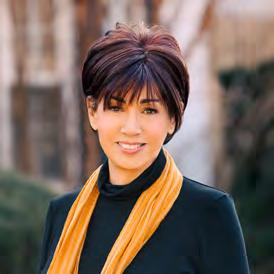
Our Temple Beth-El clergy and congregants share their wishes.
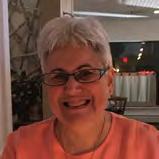
“As I begin my second year as senior rabbi of Temple Beth-El, I am excited to focus on reenergizing our youth, elevating our spiritual life and envisioning our future.”
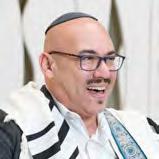


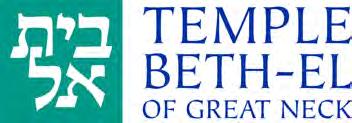 —RABBI A. BRIAN STOLLER
—RABBI A. BRIAN STOLLER
“This year, may we all find sanctity and share with one another that which is most sacred to each of us.”
CANTOR ADAM DAVIS“I hope to have a new year full of adventures and experiences here on the east coast, including working together to strengthen TBE’s education programs.”
—RABBI MEGAN BRUMER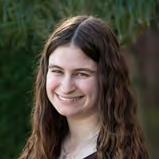
“My hope for the New Year at TBE is for our many members to become more involved, whether by volunteering, through consistently attending Shabbat services and by participating in activities that further our knowledge of our Jewish heritage.”
—ELAINE SPRINGER“I wish for peace and harmony in our country.”
 —DEBBIE JANSEN
—DEBBIE JANSEN
